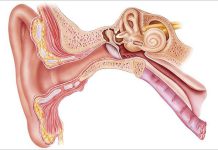4Nids.com – While chronic and acute pain is relatively common, a person may experience intermittent or sudden changes in pain. The pain may be dull or sharp, or it may be aching, throbbing, or stabbing. For chronic pain, tracking pain can help doctors develop a treatment plan. People should report pain that is persistent, new, or severe, and if it does not improve with self-care activities. Urgent medical attention is also necessary if a person experiences sudden loss of sensation or strength in the affected area.
Acute pain may be associated with an underlying disease

Acute and chronic body pain usually follow an illness or painful event. Acute pain may be sudden, lasting a few hours, or gradually getting worse over time. Acute pain usually resolves on its own, but it can also progress to chronic pain, which can last weeks or even years. Acute pain may be related to an underlying disease, or it may be an expression of anxiety. While acute pain may be a sign of an illness, chronic pain is a symptom of a more serious condition.
Various studies have identified potential links between a person’s body pain and cancer. Although there are no reliable data about the duration of widespread body pain, it is important to note that about 80 to 90 percent of patients report a continuous pain for more than three months. This number suggests that there are more causes of chronic pain than fewer causes of acute pain. Therefore, understanding the links between the two conditions is vital. So, what are the symptoms of chronic pain?
The best way to treat body pain is to find the cause and fix it

If body pain symptoms occur over a period of 2 weeks, visit a doctor. Some pain relief options can be found at home, including rehydrating and applying over-the-counter pain relievers. If body pain persists, consult a doctor immediately. You can find many natural remedies to relieve body aches and pain. There is no single cure for chronic pain. The best way to manage body pain is to find the cause and correct it.
Muscle pain can be a distressing condition because it can prevent a person from moving freely. Aching muscles are common and affect almost everyone. They make everyday activities more difficult. They often result from overuse of the muscles or a minor injury. Other causes include tension and stress. And if the pain is severe enough, it could be an indication of an underlying medical condition. For more information, read on. You may want to schedule an appointment with your doctor to find out what is wrong.
A doctor should be consulted if body pain continues for more than a few days

While most body aches are caused by exercise, they are also the result of underlying illnesses. A doctor should be consulted if body aches continue for more than a few days and do not improve on their own. You can also seek treatment for body aches at home. But remember that your doctor may also run a blood test to look for signs of other serious medical conditions. And don’t be afraid to seek help if the symptoms persist.
A lack of red blood cells in the bloodstream results in anemia. Without enough blood, the tissues of the body do not receive adequate oxygen and are in constant pain. Other health conditions that affect multiple joints can also cause body aches, such as lupus and thyroid problems. Having a healthy immune system helps prevent the body from developing infections, and it helps to fight off diseases. The symptoms of these conditions are a great way to distinguish the common cold and flu from other illnesses.
Women are more susceptible to myalgia

Myalgia is a condition that causes whole-body pain. The cause of polymyositis is not fully understood. However, it causes inflammation and weakening of the muscles, and is most common in Caucasians. Women are more susceptible to the condition than men, and symptoms may come and go. But the important thing is that you seek medical attention immediately if you notice any of these symptoms. If you suspect myalgia, make sure you get medical attention as soon as possible.
Although there are no proven cures for fibromyalgia, there are many ways to manage the pain and discomfort. Many of these methods are available at home. Home remedies can be used to help manage the symptoms, such as taking a break, consuming enough water, exercising, and sleeping. If the pain does not go away or becomes constant, you should seek medical attention. In addition to self-care, you can also consider prescription medications.





